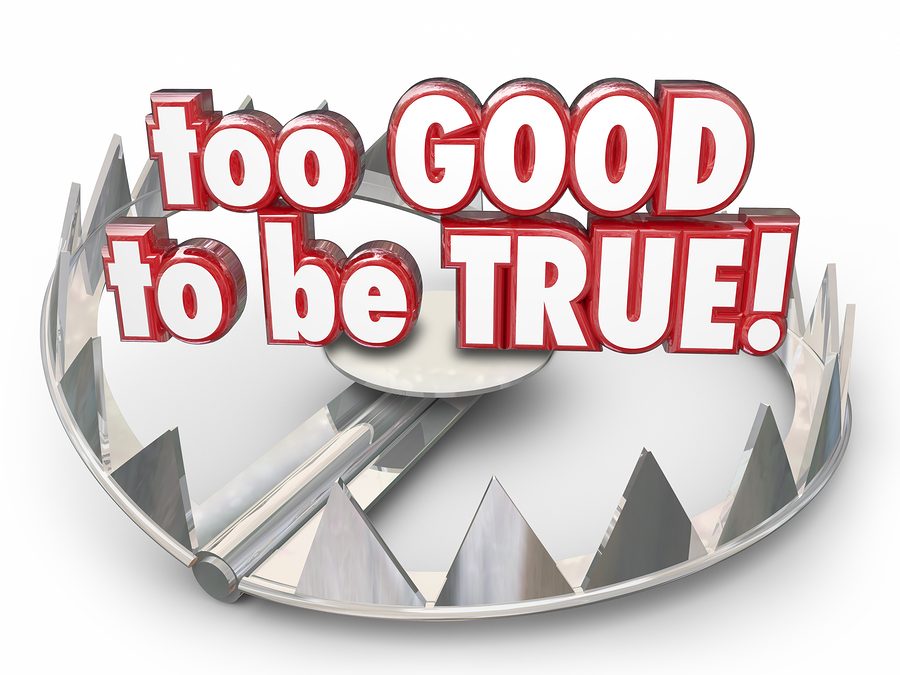Just as I completed my last blog about protecting yourself against scams, I came across this warning from the Federal Trade Commission (FTC): The FTC warns con artists are targeting church communities with a bill paying scam.
Since assisting clients with bill paying is one of my services, I was greatly concerned.
The FTC says swindlers claim a government program will pay your monthly bills for an up-front fee. Unsuspecting church-goers fall for this scheme. They learn about it at church, and, since they trust their church, believe it is a legitimate program. Their church leaders don’t understand it’s a scam.
The scammers charge an up-front processing fee and ask for personal and bank information so they can pay your bills electronically. Instead of paying your bills, however, the thieves now have enough information to clean out your bank account and steal your identity. In addition, you still owe money for your bills, may incur late fees, and have lost the fee you paid to the scammer.
If you are pitched a bill paying service that requires an upfront fee, be extremely suspicious. There is no government program that will pay your bills for a fee. There are legitimate government programs available for eligible people who need financial assistance to pay medical, energy and other necessary bills. Recipients of these funds need to apply for these programs. And, the aid programs won’t charge a fee.
If you desire a service to help you send your bill payments, seek one out. Ask your trusted advisers such as attorneys, investment advisors and accountants, for recommendations. Daily money managers (DMMs) assist clients with bill paying. You can find a DMM by visiting the American Association of Daily Money Managers (AADMM), whose members are required to follow a code of ethics. (Disclosure: I am on the board of AADMM.) A good DMM will work to help you identify scams. If you can’t locate a DMM, a business bookkeeper may be willing to assist you.
Before your hire a daily money manager or any bill paying service, ask:
- How long have you been in business?
- What professional insurance do you carry?
- To what professional organizations do you belong?
- What is your professional background?
- What are the standards of practice and code of ethics to which you adhere?
- Do you have any professional certification or designation? (AADMM offers a voluntary Professional Daily Money Manager {PDMM} certification to its members.)
- Do you take continuing education courses?
- What are your fees and how will I be charged?
- Can you provide a professional reference list?
Scam artists are extremely creative, trying to steal our money and identities when we are least suspecting it. Targeting members of a faith community is abysmal. The whole scam business – targeting any and all individuals – is appalling. But, as long as they make money, the con artists will continue. It is up to us to be vigilant and suspicious when approached with an offer or service for which we did not seek, which sounds too good to be true, or requires an up-front payment.
By Robyn Young
Money Care, LLC
Resources
Federal Trade Commission (FTC) The Federal Trade Commission, the nation’s consumer protection agency, works for consumers to prevent fraudulent, deceptive, and unfair business practices and to provide information to help spot, stop, and avoid them. A wealth of information is available on its website.
FTC article, A Government Program That Pays Your Bills?
Legitimate government sites that connect you with assistance programs
American Association of Daily Money Managers (AADMM)
Protect Yourself from Scams: Stop and Think by Robyn Young
Beware of E-mail Scams by Stephanie Raccine
This blog is published to provide you with general information only, and is not intended to provide specific or comprehensive advice. Money Care, LLC encourages individuals to seek advice from competent professionals when appropriate.

